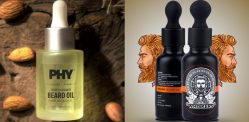It is vital to understand that fats are part of a healthy balanced diet.
There is a diverse range of cooking oils available in the market today, and the subject of healthy fats is always prominent.
It is generally a concern that many people hold; which oils are best for cooking? And which oils taste good and still hold the most nutritious value after cooking?
Olive, sunflower, and vegetable are the most commonly used oils for cooking. However there is no right or wrong when it comes to choosing which oils to cook with. Every cooking oil has a unique taste and it’s own nutritious value.
Rapeseed Oil
 Rapeseed oil is remarkably the healthiest oil used in a variety of general culinary such as frying or baking. It’s predominantly low in saturated fat so it is perceived as a healthy option. Suitable for baking, roasting salad dressing and causal stir-frying.
Rapeseed oil is remarkably the healthiest oil used in a variety of general culinary such as frying or baking. It’s predominantly low in saturated fat so it is perceived as a healthy option. Suitable for baking, roasting salad dressing and causal stir-frying.
Rapeseed oil has complimentary balances of saturated and unsaturated fats. Rapeseed oil contains less unhealthy saturated fat in comparison with other cooking fats and oils. Well balanced quantities of mono and polyunsaturated fats such as omega 3, 6 and 9 also keep the heart healthy.
As well as preserving some great beauty benefits such as fresher skin, rapeseed oil is also highly appreciated for supporting the immune system. A natural antioxidant source of vitamin E, which helps to contribute to balanced cholesterol level.
Vegetable Oil
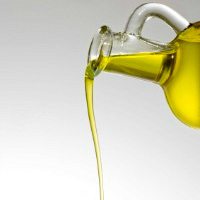 Believably the most common cooking oil is vegetable oil. It consists of a blend of several oils, such as corn, soya bean, palm and sunflower.
Believably the most common cooking oil is vegetable oil. It consists of a blend of several oils, such as corn, soya bean, palm and sunflower.
Vegetable oil is a great component of common cooking recipes and usually used for frying. Vegetable oil is virtually tasteless, making it a first class choice for baking, cooking or frying.
Vegetable oil has outstanding well-being benefits. Vegetable oil boosts metabolism benefiting many obese people.
According to a study conducted at São Paulo State University in Brazil, vegetable oils contains antioxidant substances, as well as anti-inflammatory and anti-blood clotting properties that potentially increases the body’s metabolic rate.
Vegetable oil may decrease the risk for developing heart diseases as well as lowering the fatal risk of breast cancer. It is also an alternative for achieving normalised blood pressure, cholesterol and sugar levels. Vegetable oils also help provide essential omega-3 fatty acids which are best known to keep the heart lively.
Sunflower Oil
 Food manufacturers are acknowledging the fantastic benefits of sunflower oil. It is a preferred choice for lower saturated fat cooking and loved for cooking snacks such as potato chips.
Food manufacturers are acknowledging the fantastic benefits of sunflower oil. It is a preferred choice for lower saturated fat cooking and loved for cooking snacks such as potato chips.
Sunflower oil is great for frying and can occasionally be found in salad dressings.
A rich source of antioxidant vitamin E, sunflower oil carries our daily requirement in just one and half tablespoons.
Sunflower oil is not highly loaded with omega 6, however the polyunsaturates in sunflower oil help maintain a lower cholesterol level and keeps the heart flourishing.
It is full of essential vitamin B that helps support digestion and convert fat into energy, thus promoting a healthy nervous system. It also contains folic acid, that boosts the process of new cell growth in the body, helping to build and improve tissue production.
Olive Oil
 Olive oil is available in many varieties such as ‘extra virgin’, ‘virgin’, ‘extra light’, and ‘refined’ oils. Extra virgin olive oil is considered to be the most healthiest of all types.
Olive oil is available in many varieties such as ‘extra virgin’, ‘virgin’, ‘extra light’, and ‘refined’ oils. Extra virgin olive oil is considered to be the most healthiest of all types.
Consumed often as an oil to encourage a well balanced diet, olive oil is ideal for a drizzle over salads and can be utilised in cooking.
Highly rich in nutrition value, the mono-unsaturated fats found in olive oil can prevent the risk of serious heart diseases.
Olive oil has been linked to lower potential of breast cancer and maintains average cholesterol levels. Extra virgin olive oil is high in natural plant antioxidants that can defend against harmful free radicals.
Studies also reveal that regular consumption of olive oil improves the bone mineralisation and calcification, as calcium absorption quantity in the bones is much more finer.
The health benefits of olive oil are immense, but as well as all of the benefits mentioned above it can also help to prevent skin cancer, type II diabetes and oxidative stress.
Coconut Oil
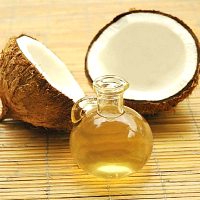 Coconut oil is known for its sweet refreshing taste. It contains the most saturated fat of all edible oils, therefore it is not ideal for a low-fat diet or a healthy lifestyle.
Coconut oil is known for its sweet refreshing taste. It contains the most saturated fat of all edible oils, therefore it is not ideal for a low-fat diet or a healthy lifestyle.
Coconut oil can be used in a variety of ways in Asian cuisines and can be used to replace butter or margarine.
The best coconut oil is extra virgin coconut oil. Coconut oil possess a high natural nutrition which benefits your health.
It’s a great source for stress relief, cholesterol, improved immune system, a healthier digestion and regulated metabolism.
Coconut oil contains properties, such as antimicrobial, antioxidant, anti-fungal, antibacterial and soothing qualities while helping to improve dental quality and bone strength. It also provides comfort from kidney complications, heart diseases, high blood pressure, diabetes, HIV, and cancer.
Not only are the nutritional benefits vast for coconut oil, but it is most commonly used as a beauty product. It can be used to help care for your hair and skin as it effectively encourages fresh cell growth in the body.
Hemp Seed Oil
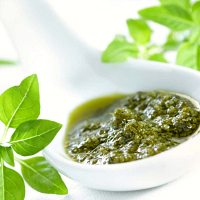 Hemp seed oil is loved for its delightful nutty flavours. Hemp seed oil is mostly considered for casual grilling, salad dressings, mayonnaise, and dips. It is not considered to be suitable for frying as this condenses the nutritious value.
Hemp seed oil is loved for its delightful nutty flavours. Hemp seed oil is mostly considered for casual grilling, salad dressings, mayonnaise, and dips. It is not considered to be suitable for frying as this condenses the nutritious value.
A wealth of health for everyone hemp seed oil is nutritionally a superb source of omega 3.
Reliving premenstrual anxiety and stress, hemp seed oil has matchless anti-inflammatory properties uncommon in other oils. Refined hemp seed oil is also an ingredient used in beauty care products to nourish skin and hair on a cellular level.
Avocado Oil
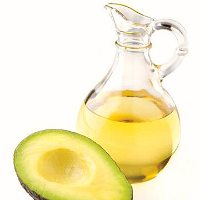 Ultra variable avocado oil is loved for its delicious burst of flavours. It is often used as an ingredient in some cooking and can be consumed as a tasty healthy cooking oil.
Ultra variable avocado oil is loved for its delicious burst of flavours. It is often used as an ingredient in some cooking and can be consumed as a tasty healthy cooking oil.
Highly pleasing in some everyday cooking needs such as grilling, frying and even pan-roasting. Its thick nutty texture makes it perfect for drizzling, dipping and salad dressings.
Nutritionally a strong competitor of the most healthiest oils, avocado oil ranks equally nutritious as olive oil. A rich amount of mono-unsaturated and polyunsaturated fatty acids, it provides a good source of nutrition such as proteins, lecithin, beta-carotene and vitamins A, D and E.
Avocado oil’s best ability is to repair and protect your cardiovascular system, it promotes faster healing, and prevents from fatal cancers. Along with coconut oil, it is a natural youthful beauty formula for skin and hair care.
Fats are generally considered a nightmare, however it is vital to understand that fats are part of a healthy balanced diet.
In fact, oils and fats are believed to be one of the three primary nutrients of a healthy-eating regime. So a low fat diet may not necessarily be better than a hearty healthy balanced diet with fats.




























































